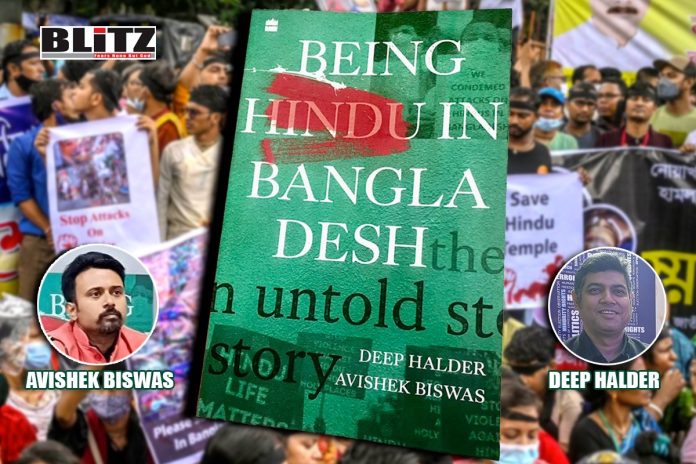In “Being Hindu in Bangladesh: The Untold Story,” Deep Halder and Avishek Biswas embark on a poignant journey through the tumultuous history and present-day struggles of Bangladesh’s Hindu minority. From the enduring scars of partition to the contemporary challenges of religious persecution, the authors meticulously unravel the complex web of identity, politics, and survival.
The book opens with a sobering reflection on the lasting impact of partition, which arbitrarily divided the subcontinent more than seven decades ago. Despite initial hopes for secularism following Bangladesh’s liberation in 1971, the country gradually shifted towards Islamization, culminating in the formal adoption of an Islamic constitution in 1988. Halder and Biswas adeptly trace this trajectory, highlighting the erosion of secular principles and the increasing influence of Islam in Bangladesh’s domestic politics.
Central to the narrative is the plight of Bangladesh’s Hindu community, whose numbers have dwindled amidst threats, attacks, and a pervasive sense of insecurity. Drawing on Halder’s extensive journalistic experience, the authors illuminate the haunting fear in Dhaka that Hindus may cease to exist in Bangladesh within the next three decades. Through compelling storytelling and empirical evidence, they shed light on the harsh realities faced by Hindus, challenging the statistical facade to reveal a narrative of persecution and displacement.
One of the book’s strengths lies in its nuanced exploration of the role played by Hindus in Bangladeshi politics, culture, and society. By uncovering the geographical concentration of Hindus and their significance as an electoral force, the authors expose the double-edged sword of political representation. While Hindu voters wield considerable influence, they also face allegations of intimidation and exclusion during elections, underscoring the fragility of their position within the democratic framework.
Deep Halder and Avishek Biswas skillfully blend archival material, firsthand accounts, and personal narratives to offer a comprehensive understanding of the Hindu experience in Bangladesh. Through meticulous research and empathetic storytelling, they humanize the stories of victims, their families, and witnesses, spanning generations and historical epochs. Biswas’s academic perspective adds depth to the narrative, focusing on the oral histories of Partition and their enduring impact on collective memory.
At its core, “Being Hindu in Bangladesh” is a powerful commentary on the intersection of religion and politics, both historically and contemporaneously. By contextualizing the ongoing tension between Hindus and Muslims within the broader framework of partition trauma, the authors highlight the cyclical nature of religious and communal violence. They challenge simplistic narratives that reduce interreligious dynamics to mere religious strife, emphasizing the underlying power struggles and political manipulations at play.
Throughout the book, Deep Halder and Avishek Biswas urge readers to confront uncomfortable truths and engage critically with issues of religious and minority rights. By amplifying voices long silenced and marginalized, they demand attention and reflection in the broader discourse on identity, persecution, and the relentless struggle for survival. “Being Hindu in Bangladesh” is not merely a book; it is a call to action, a plea for empathy, and a testament to the resilience of the human spirit in the face of adversity.
“Being Hindu in Bangladesh: The Untold Story” is a gripping exploration of identity, persecution, and the enduring quest for justice. With meticulous research, empathetic storytelling, and incisive analysis, Halder and Biswas have crafted a narrative that transcends borders and resonates with universal themes of human dignity and resilience. This book is essential reading for anyone seeking to understand the complexities of religious minority rights and the enduring legacy of partition trauma in South Asia.




